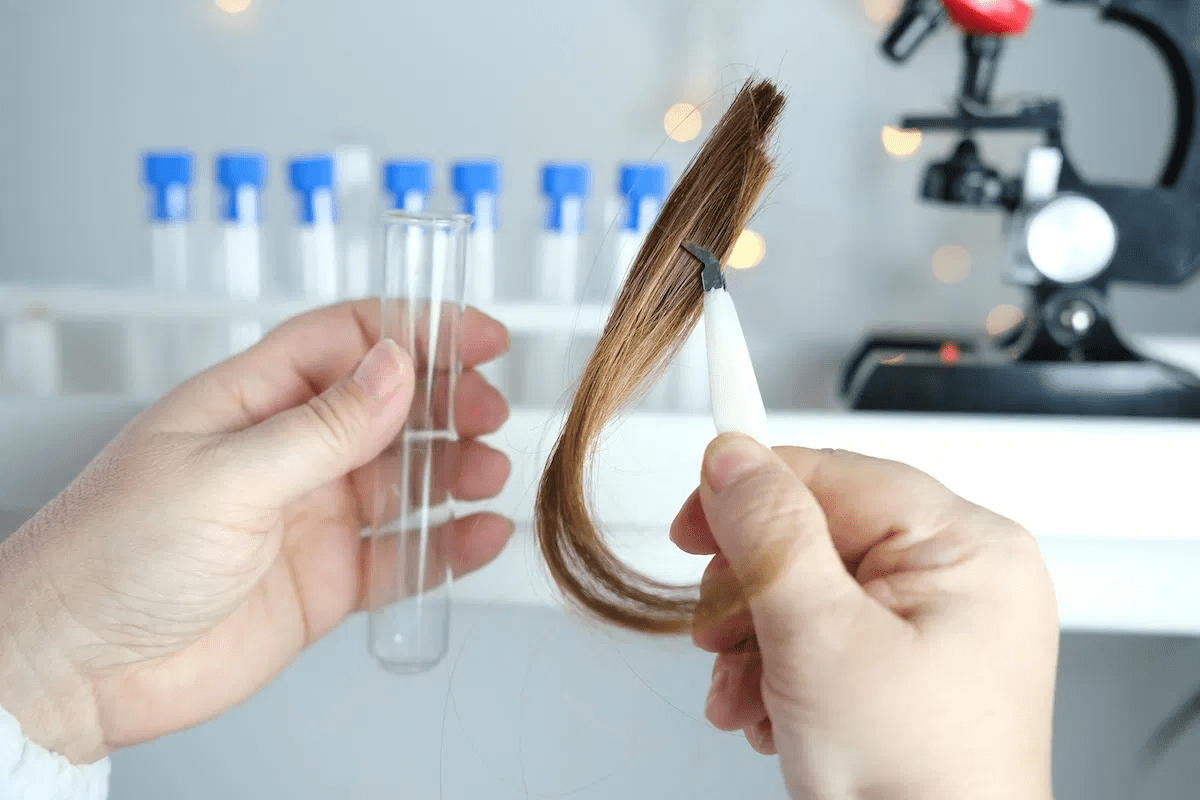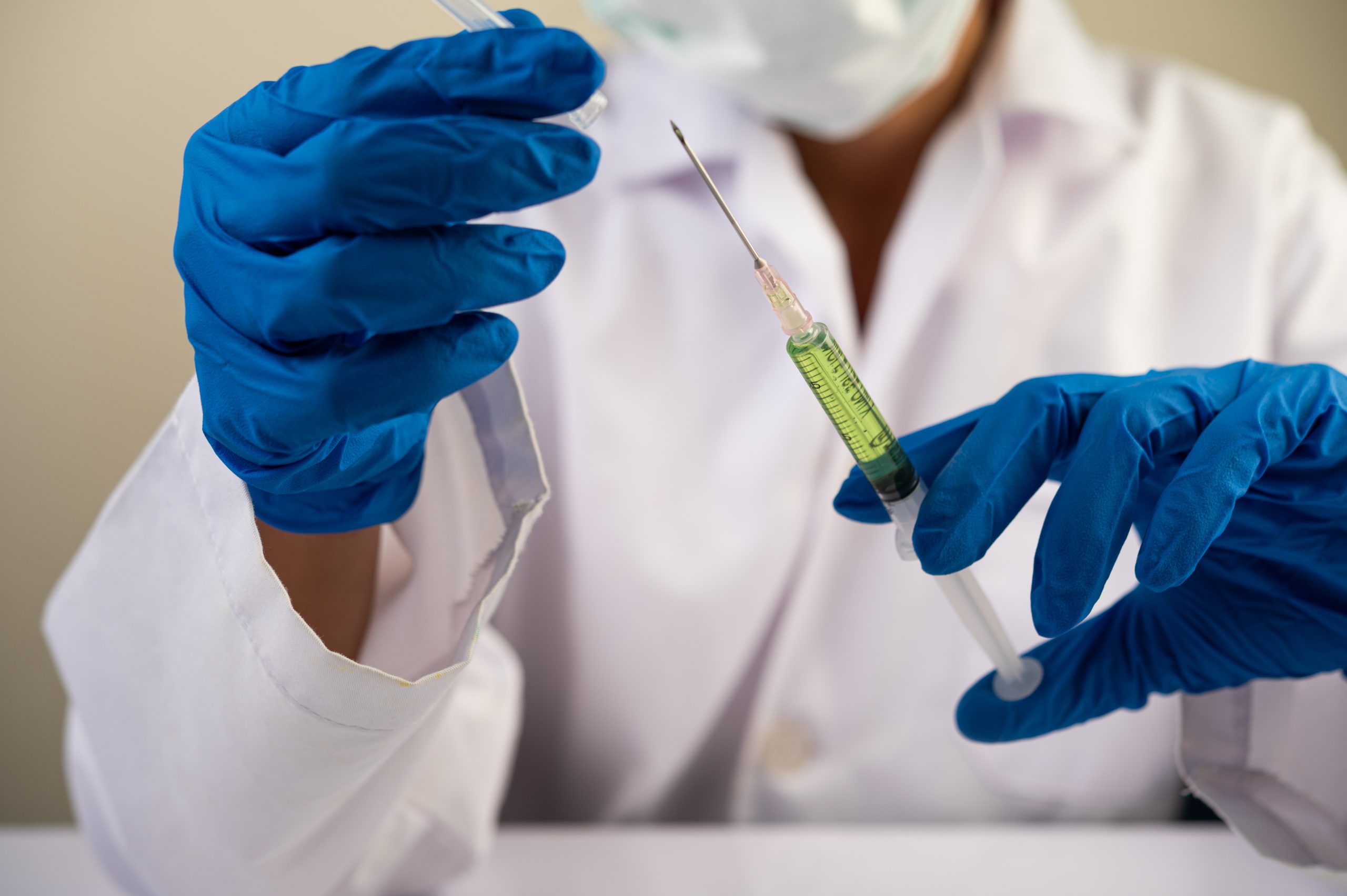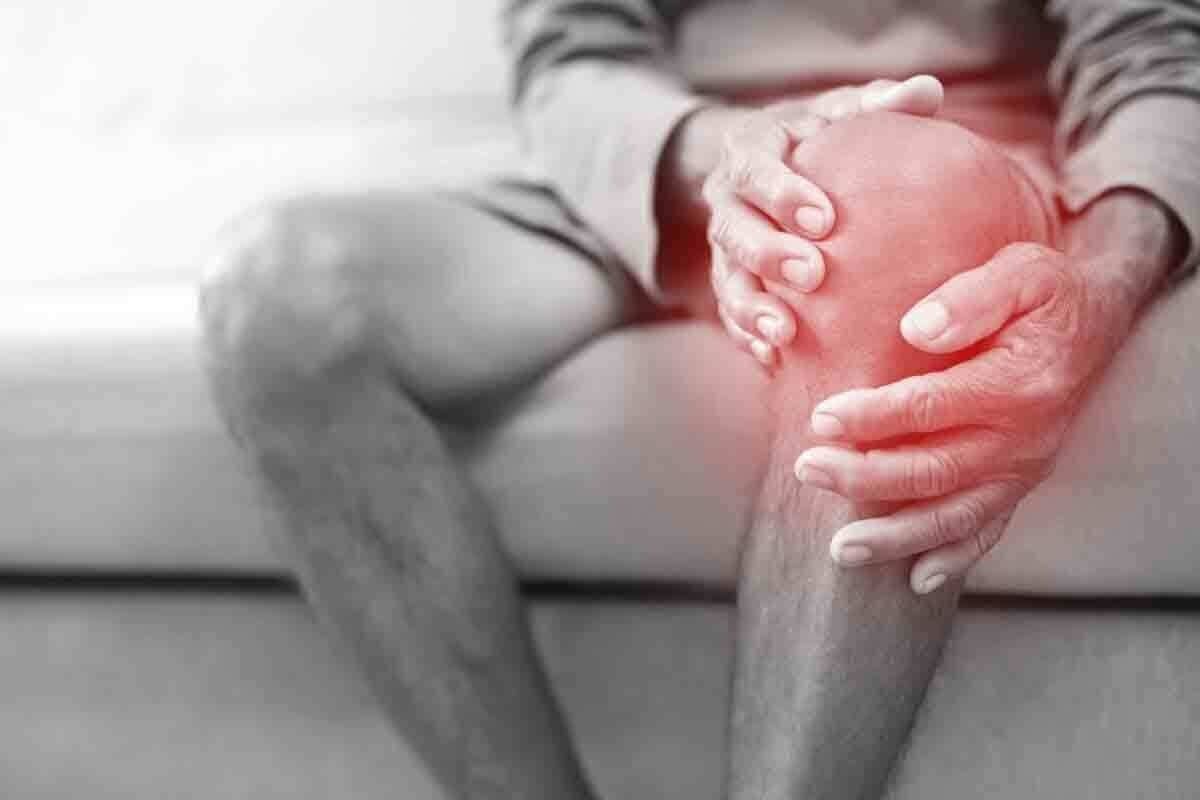Last Updated on November 26, 2025 by Bilal Hasdemir

Prostate removal is a common treatment for prostate cancer, but it greatly affects men’s sexual health. A surprising fact is that nearly 90% of men experience changes in their sexual function after this surgery.
The prostate gland plays a vital role in male reproductive health. However, removing it can raise concerns about sexual performance and recovery. Understanding erections after prostate removal is important for men preparing for or recovering from surgery.
Many patients wonder what to expect regarding erections after prostate removal. The surgery can affect nerves and tissues around the prostate, which impacts sexual function. With proper medical care and rehabilitation, some men regain their ability to have erections over time.
Key Takeaways
- Prostate removal surgery can significantly affect men’s sexual health and erectile function.
- The prostate gland plays a role in male reproductive health, but its removal doesn’t necessarily end sexual activity.
- Understanding the effects on erections is key for men facing prostate removal.
- Many factors can influence a man’s ability to get an erection after prostate removal surgery.
- Men should talk about their sexual health with their doctor before and after surgery.
The Prostate’s Role in Male Sexual Function
It’s important to know how the prostate affects male sexual health. The prostate gland is a key part of the male reproductive system.
What the Prostate Does
The prostate gland does many important things for male fertility and sexual health. It makes a lot of the seminal fluid that helps sperm during ejaculation. Seminal fluid is key for keeping sperm healthy.
The prostate’s muscles also help with ejaculation. They work with other muscles and nerves to move semen through the urethra during orgasm.
How Erections Work Physiologically
Erections happen because of many factors like nerves, blood vessels, and hormones. When a man gets aroused, nitric oxide is released. This starts a chain of events that relaxes muscles in the penis.
- Increased blood flow into the penis
- Trapping of blood within the penile sinuses
- Resulting rigidity due to increased pressure
This process is key for getting and keeping an erection for sex.
The Connection Between Prostate and Erectile Function
The prostate gland is connected to erectile function because of its location. It’s near nerves and blood vessels needed for erections. These nerves can be affected by prostate surgery.
Studies show that keeping these nerves intact is important for keeping erections after prostate surgery. Knowing this helps manage expectations and find treatments for erectile issues after prostate removal.
Why Prostate Removal Occurs
Prostate removal is a big surgery done for many reasons, like prostate cancer. Doctors decide on this surgery after checking the patient’s health and how bad their condition is.
Prostate Cancer and Radical Prostatectomy
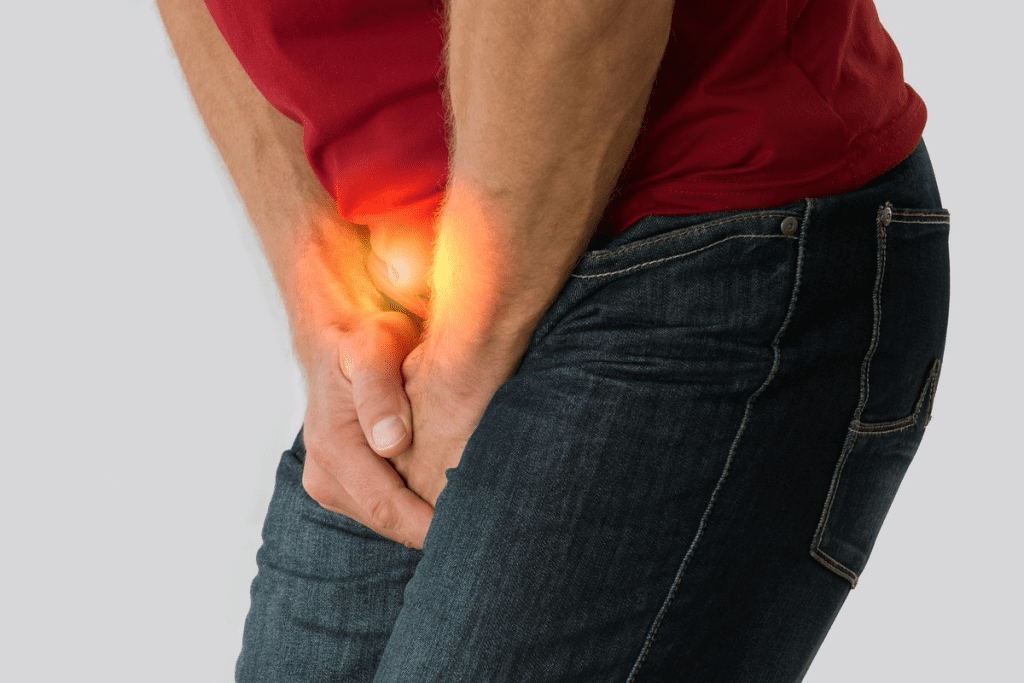
Prostate cancer is the main reason for removing the prostate. Radical prostatectomy is the surgery for this. It removes the prostate gland, seminal vesicles, and sometimes more.
The surgery aims to get rid of the cancer. This can cure the patient or greatly improve their chances. There are different ways to do this surgery, like open, laparoscopic, or robot-assisted.
Other Medical Reasons for Prostate Surgery
Prostate cancer isn’t the only reason for surgery. Other reasons include:
- Severe benign prostatic hyperplasia (BPH) that can’t be treated another way.
- Chronic prostatitis that really hurts the patient’s life quality.
- Prostate that’s too big and causes trouble with urination.
Different Surgical Approaches
The way to remove the prostate can change based on the patient, the surgeon, and the tools used. Nerve-sparing prostate surgery tries to keep nerves that help with erections. This might help keep erectile function after surgery.
It’s key for patients to know why they need surgery and the options available. They should talk to their doctor about erectile function and sexual performance after surgery.
Erections After Prostate Removal
Men often wonder if they can get erections after prostate removal. This depends on the surgery type and their health. How much prostate removal affects erections varies from person to person.
Immediate Post-Surgery Effects
Right after surgery, getting an erection is hard for most men. This is because of swelling and healing. It’s important to know that erectile problems after prostate removal are usually short-term.
Short-Term Changes to Erectile Function
In the first few months after surgery, men might start to get erections again. But, how fast this happens can differ a lot. Things that affect this recovery include the surgery method, the man’s age, and his erections before surgery.
“The recovery of erectile function after radical prostatectomy is a complex process influenced by multiple factors, including nerve sparing, patient age, and preoperative potency.” –
Source: Journal of Urology
Long-Term Outlook and Statistics
Long-term, how well men recover from prostate removal surgery varies a lot. Studies show that with certain surgeries, many men can get their erections back. It’s key for men to talk to their doctors about their chances, as many things can affect these numbers.
- Using nerve-sparing surgery can greatly help men get their erections back.
- Younger men usually have better chances of getting erections again after surgery.
- Men who had better erections before surgery tend to recover better after.
Knowing these things and having realistic hopes can help men deal with erectile issues after prostate removal.
The Science Behind Erectile Dysfunction After Prostatectomy
Exploring erectile dysfunction after prostate surgery shows it’s a complex issue. It’s caused by many changes in the body. This condition affects a man’s life and sex life.
Nerve Damage During Surgery
Nerve damage is a big problem during prostate surgery. It can cause erectile dysfunction. The nerves that help with erections are very delicate and can get hurt or cut during surgery.
To try to avoid this, doctors use nerve-sparing techniques. But, even with these methods, nerve damage can sometimes happen.
How much nerve damage a person gets can affect their chances of getting erectile dysfunction. Studies show that keeping these nerves safe during surgery is key to recovering erectile function.
Blood Flow Changes
Changes in blood flow to the penis also play a big role in erectile dysfunction after prostate surgery. The surgery can harm the blood vessels that go to the penis. This can lead to less blood flow and erectile dysfunction.
Vascular health is very important for erections. Things like high blood pressure, diabetes, and smoking can hurt blood vessel health. This makes erectile dysfunction after prostate surgery more likely.
| Factor | Impact on Erectile Function |
| Nerve Damage | Directly affects erectile function by disrupting nerve signals |
| Blood Flow Changes | Reduces blood flow to the penis, impairing erections |
| Hormonal Factors | Can influence libido and erectile function |
Hormonal Factors
Hormonal changes, like changes in testosterone levels, can also affect erectile function after prostate surgery. Even though prostate removal doesn’t directly lower testosterone, treatments for prostate cancer can.
Knowing about these factors is key to finding good treatments for erectile dysfunction after prostate surgery. A good plan should look at nerve damage, blood flow, and hormones. This can help men get their sex life back.
Nerve-Sparing Prostate Surgery and Erections
Preserving erectile function after prostate surgery is a big concern. Nerve-sparing prostatectomy is a promising solution. This surgery aims to keep the nerves around the prostate gland. These nerves are key for erections.
Nerve-Sparing Techniques
Nerve-sparing prostate surgery carefully removes the prostate gland. It tries to keep the nerves around it. These nerves are vital for erections. The success depends on the surgeon’s skill and the patient’s health.
Determining Eligibility
Not every patient is right for nerve-sparing prostate surgery. The cancer stage, age, and current erectile function matter. A doctor’s evaluation is needed to see if it’s right.
Outcomes and Recovery
The success of nerve-sparing surgery in keeping erections varies. Many men regain their ability to have erections. But, results can differ based on age, pre-surgery function, and surgery method.
| Age Group | Success Rate of Nerve-Sparing Surgery | Average Recovery Time |
| Under 60 | 70-80% | 6-12 months |
| 60-69 | 50-70% | 12-18 months |
| 70 and above | 30-50% | 18-24 months |
Nerve-sparing prostate surgery is a big step forward in treating prostate cancer. It could help keep erections. It’s important for patients to understand the procedure, check if they’re a good fit, and have realistic hopes.
Erectile Function Recovery Timeline After Surgery
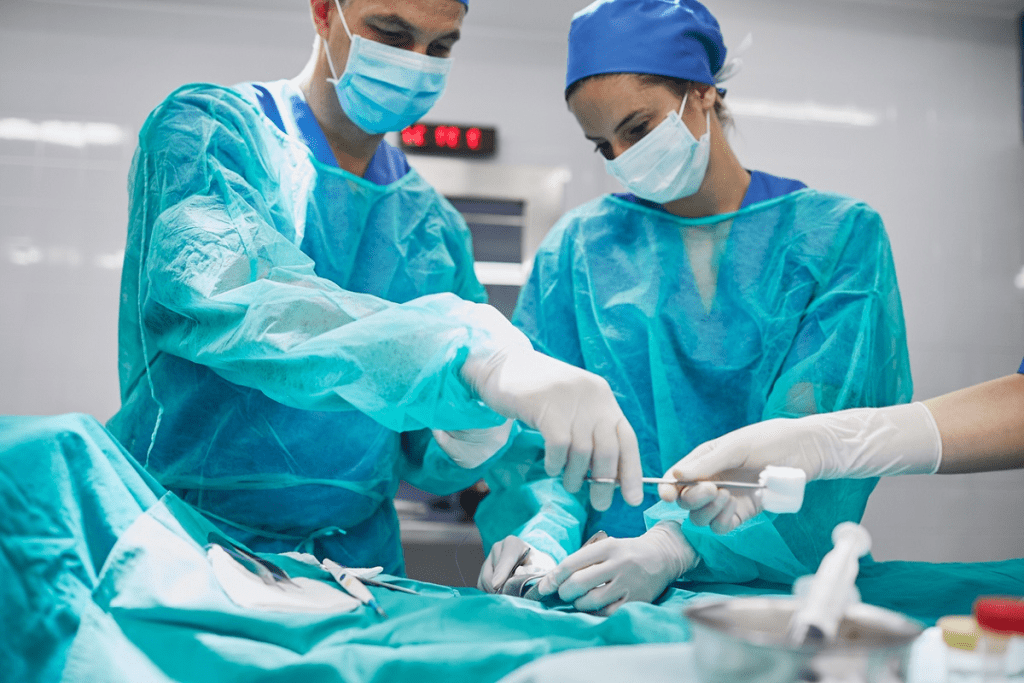
Recovering from prostate surgery takes time. It depends on many things. Knowing how long it takes can help men and their partners plan better.
First Three Months Post-Surgery
The first three months are tough. Swelling and nerve damage make it hard to get an erection. A urologist at Duke Health, notes, “The first few months are key. Patients should be patient and not worry too much about not being able to get an erection right away.”
Six Months to One Year
Between six months to one year, things start to get better. Nerves heal, and some men get erections on their own. A study in the Journal of Urology found, “By 12 months after surgery, many men see their erections improve.”
Long-Term Recovery (Beyond One Year)
After one year, things slow down a bit. But some men keep getting better. Age, how well you could get an erection before surgery, and the surgery type all play a role. Experts say, “Long-term follow-up is key to seeing how well you can recover.”
The time it takes to recover can differ a lot. Important things that affect recovery include:
- Nerve-sparing surgery techniques
- Pre-existing erectile function
- Age at the time of surgery
- Overall health and lifestyle
For the best advice, talk to a healthcare provider. They can give you personalized help.
Factors Affecting Erectile Recovery
Erectile recovery after prostate surgery is complex. Many elements play a role. Knowing these can help manage hopes and improve chances of success.
Age and Pre-Surgery Erectile Function
A man’s age and his erectile function before surgery matter a lot. Younger men with good function before surgery tend to recover better. Studies show men under 60 usually have a better chance of regaining function than older men.
How well a man can get an erection before surgery is also key. Men with strong function before surgery are more likely to get it back. This shows why fixing erectile problems before surgery is important.
Surgical Technique and Surgeon Experience
The surgery method and the surgeon’s skill are very important. Nerve-sparing surgery tries to keep nerves that help with erections. The success of this depends a lot on the surgeon’s experience.
Surgeons with lots of experience in nerve-sparing surgeries tend to do better. Their precision and care during surgery can greatly affect recovery.
Overall Health and Lifestyle Factors
A man’s health and lifestyle choices also affect erectile recovery. Things like smoking status, physical activity level, and comorbidities (like diabetes or high blood pressure) can impact recovery.
| Lifestyle Factor | Impact on Erectile Recovery |
| Smoking | Negatively affects blood flow, potentially hindering recovery |
| Regular Exercise | Improves cardiovascular health, potentially aiding recovery |
| Healthy Diet | Supports overall vascular health, potentially benefiting erectile recovery |
Healthy lifestyle choices can help improve recovery. It’s important for men to talk to their doctors about how these choices might affect their recovery.
Medical Treatments for Erectile Dysfunction After Prostatectomy
After prostate removal, erectile dysfunction can be treated with various medical options. These treatments aim to improve sexual function and quality of life for men.
Oral Medications (PDE5 Inhibitors)
Oral medications like sildenafil (Viagra) and tadalafil (Cialis) are often used. They help by improving blood flow to the penis, making it easier to get an erection.
Effectiveness: Research shows these drugs can help many men regain erectile function after prostate surgery.
Injectable Therapies
For those who don’t respond to pills, injectable therapies are an option. These involve injecting a medication directly into the penis to help get an erection.
Types of Injectable Therapies: Alprostadil and papaverine are common treatments. They can be used alone or together.
Vacuum Erection Devices
Vacuum erection devices (VEDs) are another choice. They work by creating a vacuum around the penis, drawing blood in, and then using a ring to keep the erection.
Benefits: VEDs are easy to use and can be used with other treatments. They’re great for men who can’t take PDE5 inhibitors.
Penile Implants
For a more lasting solution, penile implants are an option. These are surgically implanted and can be inflated for an erection.
Types of Penile Implants: There are inflatable and semi-rigid implants. Inflatable ones are more common because they allow for a natural erection and are easier to hide when not in use.
Men with erectile dysfunction after prostate surgery should talk to their doctor. The doctor can help choose the best treatment based on the man’s health and what he prefers.
Can Viagra Help After Prostate Removal?
Prostate removal can make it hard for men to get an erection. Many turn to Viagra as a solution. The use of PDE5 inhibitors, like Viagra, is of interest for those with erectile dysfunction after surgery.
Effectiveness of PDE5 Inhibitors Post-Surgery
Research shows PDE5 inhibitors can help with erectile dysfunction after prostate removal. Studies suggest these medications can improve function in men who had nerve-sparing surgery. But, how well they work depends on nerve damage and overall health.
A meta-analysis of clinical trials found PDE5 inhibitors significantly improve function post-prostatectomy. Success rates varied, with up to 70% efficacy in nerve-sparing surgery.
Timing and Dosage Considerations
The timing and dosage of PDE5 inhibitors are key for success post-prostatectomy. Start with a lower dose and adjust as needed under medical supervision. The best time to start therapy varies, but many doctors suggest a few months post-surgery.
- Start with a lower dose to assess tolerance and efficacy.
- Gradually increase the dose as needed and under medical supervision.
- Consider the timing of the dose in relation to sexual activity.
Limitations and Alternatives
While PDE5 inhibitors like Viagra can be effective, they’re not for everyone. Men with certain health conditions or those taking specific medications may need to explore alternative treatments. Options include vacuum erection devices, penile implants, and injectable therapies.
- Vacuum erection devices can be an effective non-pharmacological treatment.
- Penile implants are a more invasive option but can offer a reliable solution.
- Injectable therapies, such as alprostadil, can be used when oral medications are ineffective.
In conclusion, Viagra and other PDE5 inhibitors can be a good option for men with erectile dysfunction after prostate removal. But, it’s important to consider individual factors like nerve damage and health to find the best treatment.
Penile Rehabilitation After Prostate Surgery
Penile rehabilitation after prostate surgery helps men regain their ability to get erections. It involves medical treatments and lifestyle changes. These aim to restore the natural process of getting an erection.
What Is Penile Rehabilitation?
Penile rehabilitation is a treatment plan for men after prostate surgery. It aims to protect the penis and help it work naturally again. Treatments include oral medications, vacuum devices, and injections.
Common Rehabilitation Protocols
Common treatments include PDE5 inhibitors like sildenafil or tadalafil. These improve blood flow to the penis, helping men get erections. Other methods include vacuum devices and injections to boost blood flow and tissue health.
Evidence for Effectiveness
Studies show early treatment can greatly improve recovery of erectile function after surgery. A study in the Journal of Urology found early start of rehabilitation led to better results.
The success of penile rehabilitation comes from its holistic approach. It tackles both physical and mental aspects of erectile dysfunction. By using medical treatments and making lifestyle changes, men can have a better chance of recovery.
Orgasm and Ejaculation Changes After Prostate Removal
Prostate surgery can change how a man feels during orgasm and when he ejaculates. It’s important for men to understand these changes before surgery.
Dry Orgasms Explained
After prostate removal, many men experience “dry orgasms.” This means they have an orgasm but don’t ejaculate. The prostate and seminal vesicles help make the fluid that’s ejaculated. Without them, there’s little to no fluid.
A study says, “The absence of ejaculation is a direct consequence of the removal of the prostate and seminal vesicles.” This change can be hard to adjust to.
Sensation Differences
Men might feel their orgasms differently after surgery. Some say their orgasms are less intense, while others don’t notice much of a change. Orgasm involves many nerves, some of which can be affected by surgery.
A study in a urology journal found that “while some men experience a decrease in orgasmic intensity, others report no significant change.” This shows how different everyone’s experience can be.
Adapting to New Sexual Experiences
Adjusting to these changes can be tough, but there are ways to keep a fulfilling sex life. Talking openly with your partner is important. Exploring new ways of being intimate can also help.
As one urologist advises, “
Men should be prepared to explore new ways of experiencing pleasure and intimacy after prostate surgery
.” This might include trying new medications or seeking counseling.
Psychological Aspects of Erectile Dysfunction After Prostate Surgery
Erectile dysfunction after prostate surgery affects a man’s mind and heart. It’s not just physical; it touches his mental and emotional health.
Impact on Self-Image and Masculinity
Erectile dysfunction can change how a man sees himself. Being able to get and keep an erection is key to feeling manly. When this fails, he might feel not good enough and less confident.
Key effects on self-image include:
- Feelings of emasculation
- Loss of confidence in sexual abilities
- Anxiety about sexual performance
Relationship Challenges
Erectile dysfunction can also hurt relationships. Partners may feel confused and left out. This can lead to frustration and feeling alone.
Common relationship challenges include:
- Communication barriers about sexual intimacy
- Emotional distancing due to unaddressed feelings
- Changes in the dynamics of the relationship
Coping Strategies
There are ways to deal with the emotional side of erectile dysfunction. Men and their partners can find help.
| Coping Strategy | Description |
| Open Communication | Discussing feelings, needs, and concerns openly with your partner |
| Counseling | Seeking professional help to address emotional and relational challenges |
| Sexual Therapy | Exploring new ways of experiencing intimacy and sexual satisfaction |
Using these strategies can help men face the emotional side of erectile dysfunction after prostate surgery.
Alternative Sexual Practices and Adaptations
Recovering from prostate surgery is more than just healing physically. It’s also about finding new ways to be intimate. Men who have had their prostate removed might need to try different sexual activities.
Expanding the Definition of Sexual Intimacy
Sex isn’t just about penetration. It’s about feeling close and enjoying each other’s company. After surgery, couples can find new ways to stay connected and enjoy each other.
Talking openly about what you want and need is key. It makes your bond stronger and your intimacy deeper.
Non-Penetrative Sexual Activities
There are many ways to enjoy sex without penetration. These include:
- Oral sex
- Mutual masturbation
- Sensual massage
- Using sex toys
These activities can be just as fulfilling as penetrative sex. They help couples adjust to changes after prostate surgery.
Assistive Devices and Techniques
There are tools and methods to help with erections or to make sex more enjoyable. These include:
- Vacuum erection devices
- Penile implants
- Medications like PDE5 inhibitors
- Sexual lubricants and moisturizers
Using these can boost a man’s confidence in his sexual abilities. It makes sex more enjoyable for both partners.
Talking openly about what you want is important. It helps find the best and most enjoyable practices for both of you.
Partner Perspectives and Support
It’s important for couples to understand how prostate removal affects intimacy. This surgery can change a man’s sexual health, impacting his partner and their bond.
Communication Strategies
Talking openly is key for couples facing prostate surgery’s aftermath. They should share their feelings, worries, and what they need. Open dialogue helps them grasp the surgery’s changes and adapt together.
- Set regular times to talk about your feelings and experiences.
- Be honest about your needs and listen to your partner’s concerns.
- Find new ways to be intimate that feel right for both.
Intimacy Beyond Penetrative Sex
Intimacy isn’t just about penetrative sex. Couples can find closeness in other ways. Non-penetrative sexual activities, like cuddling and kissing, are important.
- Try different kinds of touch and affection.
- Do things that bring you closer emotionally, like sharing meals or watching movies.
- Think about getting advice from a sex therapist or counselor.
Resources for Partners
Partners are key in the recovery and adjustment process. There are many resources to help. Support groups, online or in-person, offer a place to share and learn.
- Search for online forums and support groups for partners of men with prostate surgery.
- Consider couples therapy to tackle relationship issues.
- Learn about prostate health and surgery’s effects.
By using these strategies and finding resources, partners can offer valuable support. They can help navigate the changes from prostate removal surgery.
Conclusion: Living a Fulfilling Sexual Life After Prostate Surgery
Prostate removal surgery can change a man’s sexual health. But, it doesn’t mean the end of a fulfilling sexual life. Understanding the changes and exploring treatments can help men deal with erectile dysfunction after surgery.
Keeping a healthy lifestyle is key. Choosing nerve-sparing surgery when possible helps too. Penile rehabilitation programs can also improve erectile function. Medical treatments like oral medications and penile implants are other options.
It’s important for men to talk to their healthcare providers and partners. This way, they can find the best treatment for their needs. With the right support and treatment, many men can enjoy a satisfying sexual life after prostate removal. This improves their overall sexual health and well-being.
FAQ
Can a man get an erection after prostate removal?
Yes, many men can get erections after prostate removal. The quality and ability to get an erection can change. This depends on the surgery method and the man’s health.
How does prostate removal affect erectile function?
Prostate removal can affect erections. This is due to nerve damage, changes in blood flow, and other factors. The impact varies from person to person.
What is nerve-sparing prostate surgery, and how does it affect erections?
Nerve-sparing surgery tries to keep nerves around the prostate intact. These nerves are key for erections. This method can help men keep or regain their ability to get erections.
Can Viagra or other PDE5 inhibitors help with erectile dysfunction after prostate removal?
Yes, PDE5 inhibitors like Viagra can help with erectile dysfunction after prostate removal. But, their success can vary. They work best as part of a penile rehabilitation program.
What is penile rehabilitation, and how does it work?
Penile rehabilitation uses treatments to restore erectile function after prostate surgery. It includes PDE5 inhibitors, vacuum erection devices, and other treatments. These help in healing and restoring sexual function.
How long does it take to recover erectile function after prostate removal?
Recovery time for erectile function varies. Some men see improvements in a few months. Others may take a year or more, or may not recover at all.
Are there any alternative sexual practices that can help cope with erectile dysfunction after prostate removal?
Yes, there are alternative sexual practices. Non-penetrative activities, assistive devices, and exploring new ways of intimacy can help. They help individuals and their partners adapt to changes in sexual function.
How does prostate removal affect orgasm and ejaculation?
Prostate removal usually leads to dry orgasms. The prostate and seminal vesicles, which produce seminal fluid, are removed or altered. The sensation of orgasm may change, but it varies among individuals.
What role do partners play in coping with erectile dysfunction after prostate surgery?
Partners are key in coping with erectile dysfunction. They provide emotional support, communicate openly, and explore new ways to maintain intimacy. This helps in maintaining sexual satisfaction.
Are there any lifestyle changes that can improve erectile function after prostate removal?
Yes, a healthy lifestyle can help. Regular exercise, a balanced diet, not smoking, and managing stress improve overall health. This can also improve erectile function.
Can erectile dysfunction after prostate removal be permanent?
While some men may have permanent erectile dysfunction, many can recover or improve with treatment and time. The outcome depends on the surgery, individual health, and post-surgery care.
References
- Emanu, J. C. (2016). Erectile Dysfunction after Radical Prostatectomy: A Longitudinal Study. American Journal of Men’s Health, 10(2), 161-171. https://www.ncbi.nlm.nih.gov/pmc/articles/PMC5005072/


